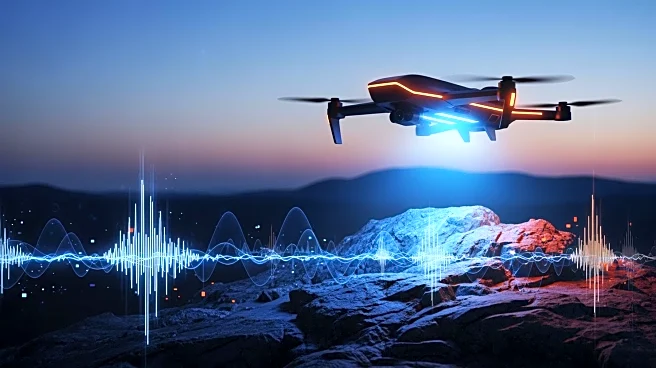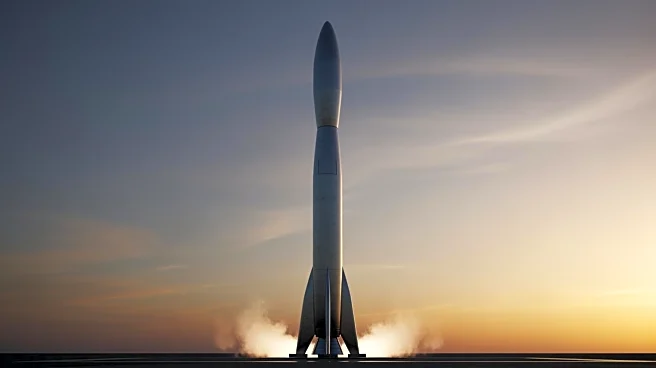What's Happening?
Alpha Unmanned Systems has developed rotary-wing UAVs equipped with redundant autopilot architecture and visual navigation capabilities to maintain ISR performance in GNSS-denied conditions. The ongoing
electronic warfare activity in Ukraine has highlighted the need for UAVs that can navigate accurately without satellite input. Alpha's unmanned helicopters, such as the Alpha A900, utilize the VECTOR-600 autopilot system, which includes redundant subsystems and multiple safeguards. The Visual Navigation System enables flight in fully denied environments by analyzing images captured by an onboard camera and tracking identifiable features. This technology allows the UAV to maintain surveillance coverage even during prolonged GNSS loss.
Why It's Important?
The development of UAVs capable of operating in GNSS-denied environments is crucial for military and defense applications, particularly in contested airspace. Alpha Unmanned Systems' technology ensures consistent mission execution despite electronic interference, reducing operator workload and enhancing autonomous behavior. As electronic countermeasures continue to evolve, the integration of onboard sensing and autonomous capabilities will become increasingly important for effective UAV operation. This advancement positions Alpha Unmanned Systems as a key player in the development of resilient UAV technology, potentially influencing future military strategies and defense operations.
What's Next?
Alpha Unmanned Systems plans to continue enhancing its UAV platforms to further improve their capabilities in GNSS-denied environments. The company may explore partnerships with defense and security sectors to deploy these advanced systems in various applications, including border control and maritime ISR missions. As the demand for reliable UAV technology grows, Alpha Unmanned Systems is likely to expand its market presence and contribute to the development of innovative solutions for electronic warfare challenges.










